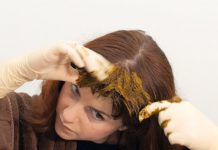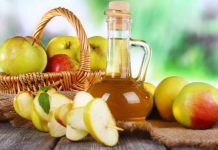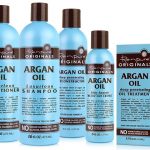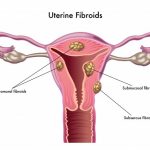In this article, we are discussing how to use folic acids for hair growth? Folic acid or Vitamin B9 is a vital nutrient and is essential for the proper working of the human body. Folic acid is also called as Folate, it is a water-soluble vitamin. Folate is a usual store of compound nutrients like pteridine, PABA, and glutamic acid. Deficiency of folic acid might lead to many health issues, including the occurrence of uncontrollable hair loss. On the other hand, lack of this essential nutrient is often held accountable for exploiting of natural hair growth. Found in several natural foods and green leafy vegetables, one can easily take this essential vitamin B, when looking for natural treatment for hair loss.
How Does Folic Acids Works for Hair Growth?
Regular eating of folate or folic acid aids the tissues to produce smoothly and the cells to function properly. These tissues fundamentally belong to, skin, hair, nails, and other organs. Another popular input of folic acid is its natural ability to prevent birth and neural deficiency. For such usefulness, folic acid compound medicines are often prescribed to expecting mothers. Folic acid has proven effects on cell production. Hence, it is a natural stimulator for promoting hair growth in both men and women. A recent study has established that Folate is successful in curing alopecia. Regular intake of folic acid has been found amazingly effective in reducing male & female pattern baldness.
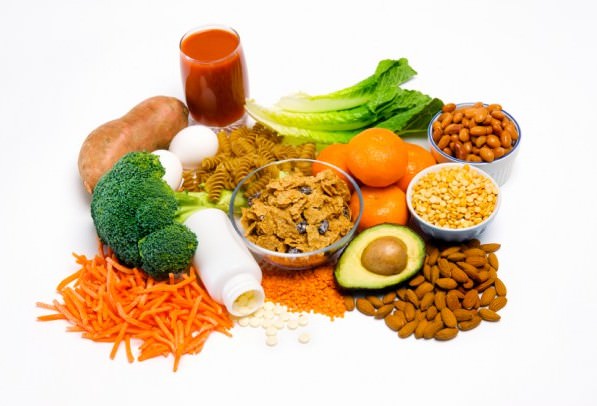
What Are The Natural Sources of Folic Acid?
It is always secure to look for the natural sources, as they are protected and free from any side effects. Luckily, folic acid is found abundantly in numerous fruits and dark green leafy vegetables. All the dried beans, citrus fruits, and all leafy green vegetables like spinach, French beans, capsicum, chilies, and broccoli are rich sources of natural folic acid. Some other foods prepared with this essential nutrient include bread, rice, pasta, cereals, flours, and other multi-grain products. One can consume folic acid supplements as well when these natural foodstuffs are not adequately accessible.
Folic Acids For Hair Growth:
All the B complex vitamins encourage hair growth. Vitamin B9 is a stimulator, which aids speeding up the discharge of nutrients from other foods. Therefore, it helps to promote the functioning of all nutrients of the body. These nutrients are beneficial in contributing the hair follicles extra shine and volume. As folic acid speeds up cell separation, it contributes to natural growth faster. Amusingly, any type of hair or scalp issue generated due to lack of Folate can be corrected by taking more and more foodstuffs improved with folic acid.
Folic Acids for Premature Hair Graying:
Deficiency of folic acid is a major reason of premature graying of hair. Hair discoloration happens due a process called megaloblastic anemia, where the production of red blood corpuscles raises abnormally. Regular intake of folic acid helps to standardize this over production of the red blood cells.
Folate helps in metabolizing fat, protein and carbohydrates effectively. It helps to cater to the inclusion of different nutrients within the human body. In this way, the hair follicles obtain their required nutrition from the consumed foods. It is helpful for one to intake folic acid frequently, as it helps in reducing the signs of alopecia, male pattern baldness, hair shaft disorder, and hirsutism.
What Is The Ideal Dosage of Folic Acid?
For adults, the ideal amount of folic acid is 400mg a day. The intake limit should not exceed the limit of 1000mg a day. However, a lactating mother or an expecting mother may intake 600mg to 800mg folic acid every day for overall well-being. It is always safe and best to choose for the natural food components to fulfill the insufficiency of folic acid. If it is not possible, one should consult an expert about the daily-recommended dosage of Folate.
Major Sources of Folic Acids for Hair Growth:
There are many regular food items that are rich in folic acid.
1.) Broccoli Source of Folic Acids For Hair Growth
A half cup of sliced broccoli gives you 52 micrograms of folic acid or about 13% of what a person should eat per day. Broccoli can be eaten cooked or raw. It makes an immense count to salads and pasta dishes, or you can add it to another dish to your favorite fish or meat.
2.) Avocados Source of Folic Acids For Hair Growth
If you’re afraid of getting enough folic acid, avocados are one of the most excellent fruits you can eat. Eat only a single avocado each day, and you’ll fulfill 41% of the daily suggested value of folic acid. Avocados are a nutrient-rich food that also gives your body with Vitamin C, potassium, and antioxidants. Which is helpful for hair growth and it also helps make your hair stronger and shinier.
3.) Dry Roasted Soybeans Source of Folic Acids For Hair Growth
Soybeans are a wonderful food that is loaded with minerals and nutrients. A half cup of dry roasted soybeans consists of 44% of the daily suggested value of folic acid, serving you reach your quota for the day while encouraging the health of your cells and heart. High levels of folic acid are also essential in avoiding depression and protecting against cancer. Which in return reduces hair fall and promotes hair growth.
4.) Bananas Source of Folic Acids For Hair Growth
One medium-sized banana consists of about 6% of the daily suggested value of folic acid. Grabbing a banana as a snack can be the best way to get that last little bit of folic acid into your diet for the day. It’s also a great fruit to enjoy on a regular basis anyway: bananas are high in potassium, protein, and fiber. Which helps promotes hair growth and nourishes scalp reducing scalp problems. Improves hair and strengthen the hair locks.
5.) Oranges Source of Folic Acids For Hair Growth
There are many causes besides Vitamin C to make sure you’re getting enough of oranges in your diet. Oranges are a feasible source of folic acid, with about 29 micrograms in a single small orange. Fresh-squeezed orange juice is always a choice, but consuming the fruit itself gives you the most health benefits. Consume a single orange each day to make your hair looks shinier and healthy. It also helps reduce damage hair and improves the texture of your hair.
Other Benefits of Folic Acid
1.) Helps in Pregnancy
Folic acid is very helpful during the during pregnancy and preconception period as well. This is widely used to stop any birth disorders, improve the fetus development, and increase the chances of conceiving.
2.) Deal with Depression
Folic acid is used to treat depression and boost mood regulation. A sufficient folate is vital for proper brain functioning.
3.) Good Digestion
Folic acid works with vitamin C and vitamin B12 to help the body digest and utilize proteins.
4.) Reduces Acne
Folic acid, with other essential antioxidants, helps in reducing toxins from the body, which can treat acne on the face. But, make sure you don’t overdose the folic acid as it can lead to more acne, patchy and dry skin.
5.) Hair Growth
Folic acid plays a vital role in hair growth. It repairs the cells that help the growth of hair. Lack of folic acid can lead to premature graying and hair loss.
6.) Red Blood Cells
Folic acid has a significant function in red blood cells. White blood cells are also formed with the help of folic acid supplements.
7.) Healthy Glow
The proper consumption of folic acid can give you a healthy, natural, and moisturized glow on your skin.
8.) Heart Disease
Folic acid also helps the heart in many ways. It helps diminish blood clotting, as blood clots can lead to cardiovascular disease. Hence, it helps decrease the chances of heart attacks.
9.) Prevents Cancer
Folic acid can stop the cancer cells from multiplying. You can prevent from colon cancer by consuming folic acid through foods or supplements. It can also help prevent pancreatic cancer and cervical cancer.
10.) Firm Skin
Folic acid helps increase the firmness of the human skin. It also helps decrease the signs of skin aging.


